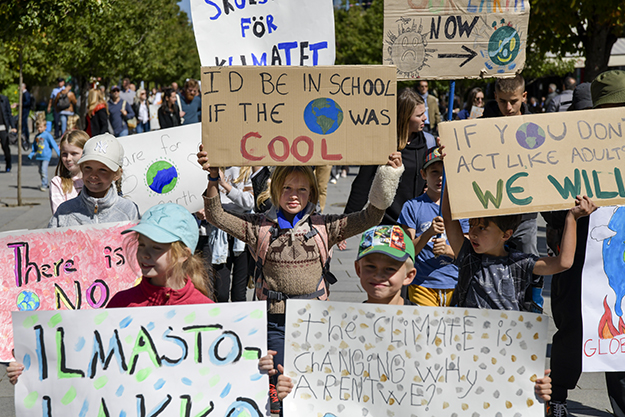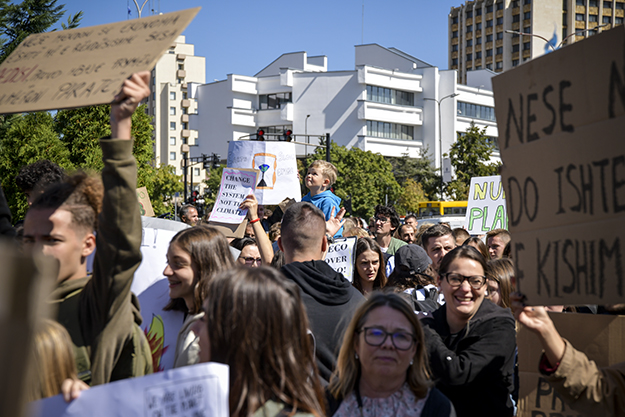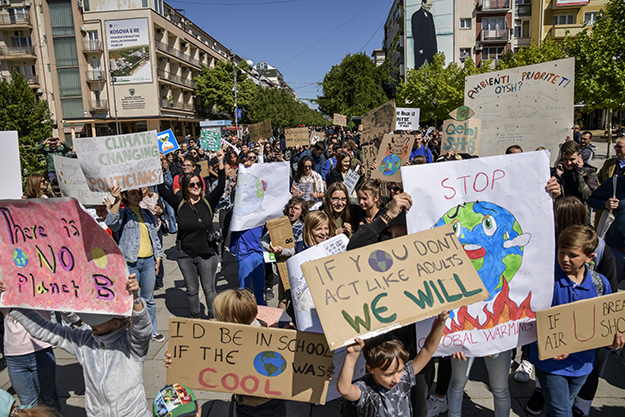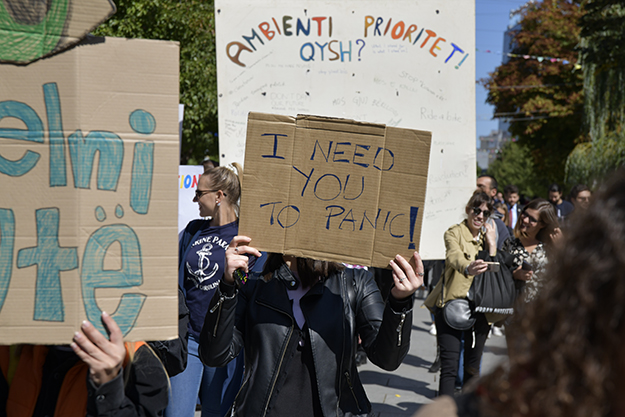Crucial conversations on coal and climate change.
More than a hundred protesters, predominantly young people, gathered in the center of Prishtina on Friday (September 20), to demand greater action on environmental protections.
The protest was part of the wider global climate strike being held around the world on this day with citizens calling for people in power to do more to fight climate change, pollution and environmental destruction.
A central tenet stressed by protesters in Kosovo and in the world is the acute need to transition away from fossil fuels to renewable energies. Kosovo in particular draws practically all its energy from coal-powered plants and a new power plant is being planned despite well-documented environmental and health concerns.
There were also complaints at the construction of new hydropower plants within Kosovo’s national parks. The construction of hydropower plants with little regard for associated environmental degradation is an issue that saw dozens of protesters head to the Sharri National Park at the weekend in opposition to the construction of two hydropower plants that they say threaten the park’s protected biodiversity.
A similar protest in Peja earlier this year against a hydropower plant planned for the River Lumbardhi drew hundreds of protesters and successfully brought a halt to development.
Friday’s climate strike action coincidentally falls during the second edition of Kosovo Sustainable Development Week (KSDW), which started on September 16 and will go on until September 22.
KSDW is a platform fostering dialogue between different interest groups on issues related to sustainable development, such as the sustainable development of the environment sector, renewable energy resources and efficiency, circular economy, urban planning, climate change, water management and education for sustainable development.
Learta Hollaj, from the Institute of Development Policy (INDEP), is the coordinator of the event. She said that the objective of this edition of KSDW is to convey the conclusions reached at the event to the new structures that will lead the country after the election, so that they can be of use to measure progress on the aforementioned issues. KSDW is supported by various local government and international institutions, the EU and Germany, as well as local organizations with an environmental focus.
What’s going on?
KSDW includes a variety of different activities. These range from high level conferences revolving around issues related to sustainable development and trainings on sustainability in the private sector to workshops for the youth, sports and ballet performances for the environment, film screenings with solar cinemas, car-less days, masterclasses to raise awareness about environmental protection, meetings with residents of Obiliq to discuss the environmental challenges that the municipality is faced with, and more.
As part of KSDW, two films are being screened in collaboration with DokuFest and local partners. Screenings of the selected films “Climate Change — The Facts” and “Trashed” have been taking place throughout the week in Prishtina as well as in Gjakova, Mitrovica, Kamenica, Peja and Graçanica.
Hollaj says that these two well-known films are related to two of the main issues explored through this week, which are “important for the country, the region and the world.”
The protagonist of Candida Brady’s “Trashed,” British actor Jeremy Irons, sheds light on the issue of waste by traveling to some of the most beautiful countries in the world, which are being suffocated by pollution. The harrowing film seeks to eliminate any remaining skepticism and indifference towards pollution and waste.





